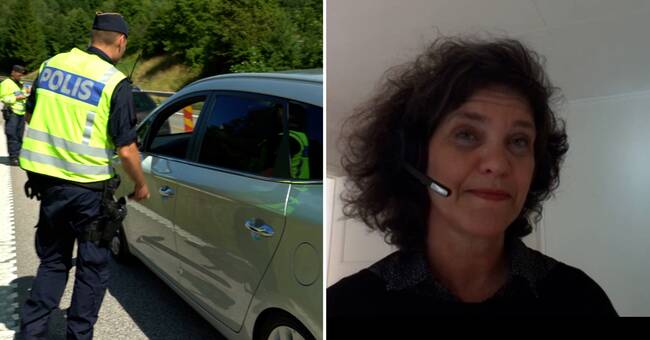The decision is based on studies of traffic accidents.
According to the Swedish Transport Administration, about 50 lives could be saved each year if everyone kept the speed.
Maria Krafft works with traffic safety issues at the Swedish Transport Administration.
She explains that small increases in speed make a big difference when an accident occurs, because the kinetic energy does not increase linearly with the speed.
- It increases exponentially and really sticks out around 80 kilometers per hour.
"The speed difference makes a big difference"
She says that a frontal collision at 85 kilometers per hour instead of 80 kilometers per hour increases the risk of fatal injuries by 20 percent.
- You yourself experience the speed difference as very small, but it makes a big difference.
But aren't those who drive really fast causing accidents?
- You should not stop controlling those who drive too fast, but when it comes to saving lives, it is this type of effort that has an effect.
We see it in the statistics.
Police: Considered okay to drive a little too fast
She states that we in Sweden have a norm that says that it is not okay to drive a car and be drunk, but that it is considered okay to drive a little too fast.
- About 50 percent of all motorists drive too fast, says Maria Krafft.
But the police can not fine half of all motorists, can they?
- The police will make checks on the roads where we know that the risk of serious injuries is greatest.
The hope at the Swedish Transport Administration is that the norm for speeding will be changed.
According to Maria Krafft, a majority of all motorists drive up to ten kilometers per hour too fast.
- If we affect the large mass, it is more effective to save lives, than if you only focus on those who drive very much too fast, she states.
In the clip, you hear Maria Krafft explain more about why it is important to focus on low-speed violations.
Graphics: Pia Borgström / SVT

